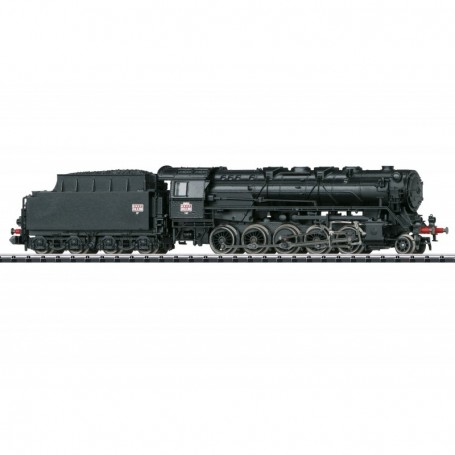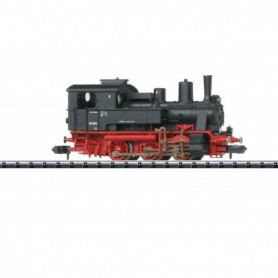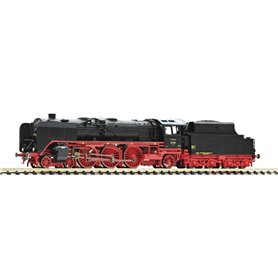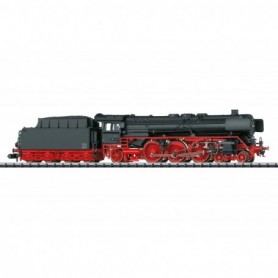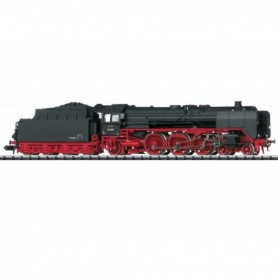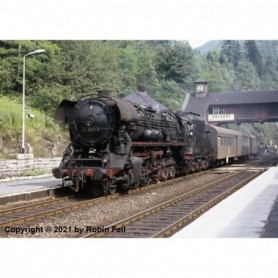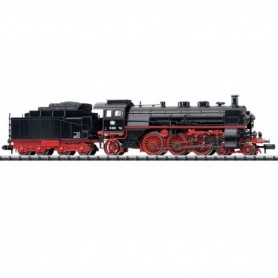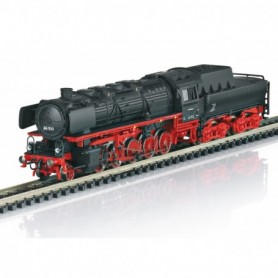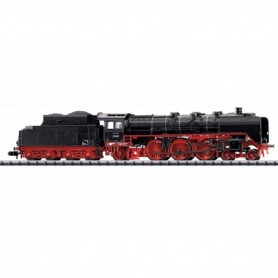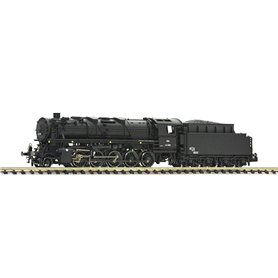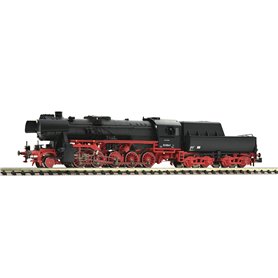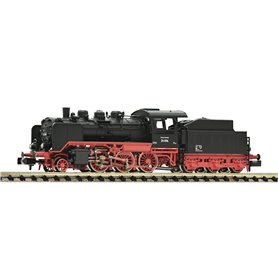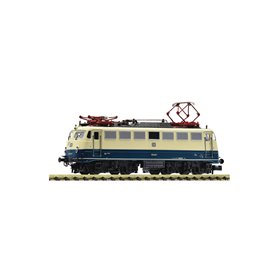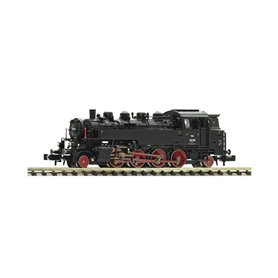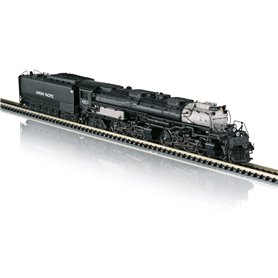Class 150 X Steam Locomotive
-
 Secure payment in our shop!
Secure payment in our shop!
Class 150 X Steam Locomotive
Model: The locomotive and tender are constructed of die-cast metal. The locomotive has a motor with a bell-shaped armature and a flywheel, built into the boiler. 5 axles powered through side rods. Traction tires. The locomotive has a built-in mfx/DCC digital decoder and a sound generator. There is a close coupling between the locomotive and tender. Warm white LEDs are used for the dual headlights, running gear lights, and cab lighting. The locomotive has flickering firebox lights by means of processor-controlled LEDs (red/orange). The dual headlights work in analog operation. The tender has an NEM coupler pocket on the end. The smoke box door can be opened. Length over the buffers 141 mm / 5-9/16'.
Prototype: French State Railroad (SNCF) class 150 X steam locomotive with a tender (2-10-0 design). The locomotive looks as it did around 1950. Use: Heavy freight trains.
T16442 SNCF Class 150.X Steam LocomotiveThe history of the French steam locomotive class 150.X began in the middle of World War II, since after the occupation of France by Germany the local locomotive builders Batignolles-Châtillon (Nantes), SFCM Cail (Denain) ), Fives-Lille (Lille), Schneider-Creusot (Le Creusot), and Grafenstaden (Illkirch-Grafenstaden) were pulled into the production of the German classes 44, 50, and 52 needed for the war. After the liberation of France from the occupying German troops, the French locomotive builders delivered the class 44 units ordered by the DRG directly to the French State Railroad (SNCF). This included road numbers 44 1517-1520, 1701-1720, 1766-1795, 1805-1845, 1859-1905, 1936-1949, and 1956-2025 built between 1944 and 1948. These 226 locomotives were initially rostered by the SNCF as the class 150.X while maintaining their ordinal numbers. Starting in March of 1950, they were rostered in the aforementioned class with the ordinal numbers 150.X.1-226. Furthermore, after the end of the war road numbers 44 819, 838, 928, 929, 941, 942, 962, 1083, 1089, 1110, 1801, and 1803 had to be surrendered to the SNCF, which then however maintaining their ordinal numbers also rostered them as the class 150.X.The class 150.X units were the heaviest decapod locomotives in the French network as well as rare exotic units as three-cylinder locomotives with right hand controls. The focal point of their use was the Lorraine industrial basin with it numerous steel works, coking plants, coalmines, and ore works, where they could prove their worth pulling heavy volume freight trains. Yet, their heyday only lasted until the mid-Fifties, because as early as mid-1954 the encroaching AC electrification with 25 kilovolts / 50 Hertz increasingly limited their use in the Lorraine Basin. Soon part of the class 150.X units were no longer needed. It thus turned out well that the Turkish State Railroad (TCDD) was looking for a powerful locomotive for their lines in the Taurus Mountains and struck it rich with the class 150.X, which were not even ten years old. Starting in the spring of 1955, 48 units thus landed in Turkey, which rostered them there as 56.701-748. Starting in May of 1960, the class 44 units in France were based in the Depot Audun-le-Roman, west of Thionville on the line to Longuyon, as the last foothold for these heavy three-cylinder units. There road numbers 150.X.29 on July 23, 1965 and 150.X.145 on August 4, 1965 were retired as the last locomotives of their class.
Metal construction.Motor with a bell-shaped armature and a flywheel. Steam locomotive sound.Running gear lights.Flickering firebox lights.
- Scale
- 1:160
- Country
- SNCF
- Epoch
- III
- Current
- DC
- Option
- Digital Sound

